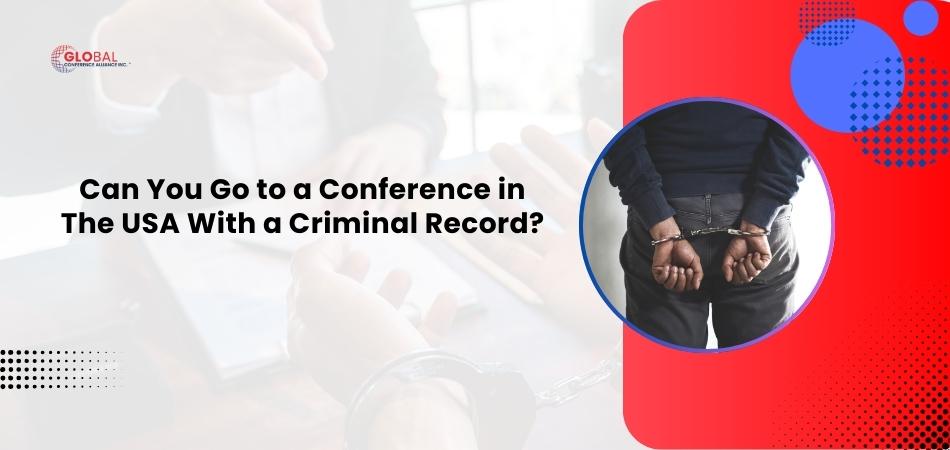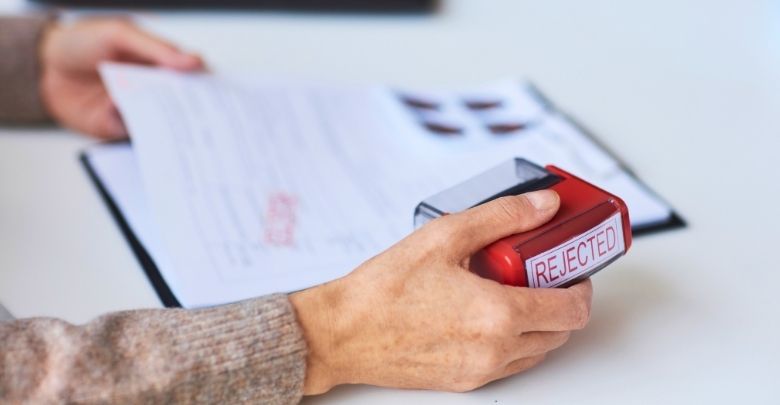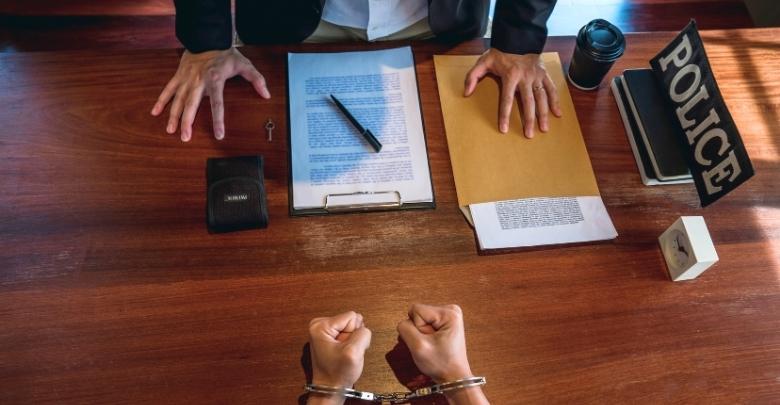An opportunity to expand your knowledge and connect with industry professionals awaits you if you attend a conference in the USA. Whether for networking or learning, conferences in the U.S. attract many participants from all around the world. But, you might be wondering: Can you go to a conference in the USA with a criminal record?
Yes, it’s possible to attend a conference in the USA with a criminal record, but there are some important factors to consider. You must disclose your criminal history on your visa application. Serious offenses, like felonies or drug-related crimes, can affect your eligibility and may delay or deny your visa approval.
Do you want to know how your criminal history may affect your application for a visa? This article will guide you through all the necessary steps and information you need to know, helping you understand how to improve your chances of attending that conference.
Can You Go to a Conference in the USA With a Criminal Record?
In the USA, attending conferences can be a great way to network with like-minded people and learn more about your field. For those with a criminal record, knowing the implications is important. Here are a few steps to clarify your concerns.

Step 1. Be Aware of the USA Entry Requirements
The United States has strict visa policies, especially for individuals with a criminal record. When applying to attend upcoming conferences in USA, you must disclose your criminal history during the visa application process. Full transparency is crucial; withholding information or providing false details could result in visa denial or even a permanent ban from entering the country.
Step 2. Crimes That May Impact Your Entry
Not all criminal records will impact your entry to the USA. Minor offenses, like traffic violations, are generally not a concern. However, serious crimes, such as drug trafficking, violent offenses, or felony convictions, can significantly affect your chances of obtaining a visa. These serious charges may lead to a denial of your entry application or delay the approval process.
Step 3. Visa Waiver Program (VWP) and Eligibility
The Visa Waiver Program allows citizens of specific countries to enter the USA without needing a visa for short stays. However, a criminal record may disqualify you from using this program. In such cases, you will need to apply for a visa, which involves additional paperwork and a more thorough evaluation of your criminal history.
Step 4. Apply for a USA Visa With a Criminal Record
If you have a criminal record, you must provide a complete and accurate history during your visa application. This includes submitting relevant court records, police certificates, and any supporting documents. You should be honest and upfront during your interview, as failure to disclose your criminal history can lead to visa denial or future issues.
Step 5. Seeking Legal Advice
If you’re unsure about how your criminal record will impact your ability to attend a conference in the USA, seeking legal advice is beneficial. An immigration attorney can help you get through the visa process, assess your eligibility, and offer guidance on the best steps to take to increase your chances of approval.
Step 6. Impact of Rehabilitation and Time Passed
The USA may consider the time passed since your conviction and whether you’ve demonstrated rehabilitation. A clean record for several years, along with proof of good behavior, can help show that you’ve reformed. This could make a significant difference in how your visa application is viewed by consular officers and increase your chances of success.
Step 7. Consular Discretion in Decision-Making
Visa officers have the discretion to approve or deny applications based on their assessment of the applicant’s situation. Even if you meet all the formal requirements, they may still ask additional questions or request further documents. Showing your genuine intention to attend a conference and presenting yourself respectfully can help sway their decision in your favor.
Step 8. Preparing for Questions at the Border
Even with an approved visa, U.S. immigration officers may ask about your criminal record upon arrival. Be prepared to answer questions honestly and provide additional documents if requested. Any inconsistencies or dishonesty could result in denial of entry, so it’s important to remain calm, respectful, and cooperative throughout the process.
Step 9. Tips for a Successful Conference Experience
If you successfully gain entry to the USA, focus on making the most of your conference experience. Arrive early, engage with attendees professionally, and follow local laws. Conferences offer great opportunities for learning and networking, so make sure you stay focused on your goals while maintaining a respectful and professional demeanor.
Although attending a conference in the USA with a criminal record can pose challenges, it is possible with proper preparation and honesty. By following the outlined steps, you can improve your chances of approval and focus on making the most of the opportunity.
Visa Options for Individuals With Criminal Records Attending USA Conferences
When considering visa options to attend conferences in the USA, individuals with criminal records may face additional challenges. The alternatives below can assist in guiding the process and increase approval chances.
- B-1/B-2 Visitor Visa: This visa allows attendance at conferences, but individuals with criminal records may undergo a more thorough screening process. Full disclosure is essential.
- Waiver of Ineligibility: If denied entry due to a criminal record, applicants may apply for a waiver. This waiver can be granted based on factors like rehabilitation or time passed since conviction.
- Tourist Visa (B-2): For short stays, a B-2 visa may be an option. However, having a criminal record can lead to additional scrutiny or visa denial. Provide supporting documents to show eligibility.
- Consular Officer Discretion: Visa approval may depend on the consular officer’s evaluation of the applicant’s criminal history. This includes considering the type and severity of the offense and any rehabilitation efforts.
- Immigrant Visa Options: If planning to immigrate permanently, individuals with criminal records can explore immigrant visa options like family-sponsored or employment-based visas, but criminal history may delay the process.
While there are visa options for those with criminal records, transparency, proper documentation, and professional guidance can improve the chances of receiving approval for attending conferences in the USA.
What Should You Do if Your USA Visa Application for a Conference is Denied?
Getting a visa denial for a conference in the USA can be frustrating. However, knowing your options is key to moving forward. If your application is rejected, you should know what steps you can take next. Here are a few useful strategies to deal with it:
Step 1. Review the Denial Reason Carefully
The first step is to carefully read the rejection letter for USA visa. This letter will explain why your application was denied. You can resolve the issue by identifying the reason for the rejection, whether it’s an incomplete application or insufficient documentation.
Step 2. Reapply With Additional Documentation
If your visa was denied due to insufficient documentation, you can reapply. Make sure to provide any missing paperwork, such as financial statements or an invitation letter from the conference organizers. Strengthening your case with additional proof may improve your chances for approval on a reapplication.
Step 3. Address Ineligibility Issues
If the rejection was based on ineligibility, such as a criminal record or prior visa violations, addressing these concerns is essential. In some cases, you may be able to apply for a waiver or take steps to resolve the issue, such as demonstrating rehabilitation if required.
Step 4. Consult an Immigration Lawyer
If you’re unsure why your visa was denied or how to move forward, consulting an immigration lawyer is a good idea. They can help you know the nuances of your case, provide advice on how to proceed, and assist you in reapplying with the right documentation.
Step 5. Consider Alternative Visa Options
If a standard tourist or business visa was denied, you might explore other visa options. For example, a B1/B2 visa might be suitable if you were attending a conference as a business participant. An immigration lawyer can help identify the best route depending on your situation.
If your USA visa application for a conference is denied, don’t panic. Review the reasons for rejection, gather additional evidence, and consider reapplying. Consulting an expert and exploring other visa options may increase your chances of a successful application next time.
What Happens if You Fail to Disclose a Criminal Record on Your USA Visa Application?
When applying for a U.S. visa, you should be honest about your criminal history. Failing to disclose this information can lead to serious consequences, potentially impacting your visa approval. Here are a few risks of not being transparent.
Visa Denial
Failing to disclose a criminal record can lead to an automatic visa denial. The U.S. government requires full honesty on visa applications, and any attempt to hide or misrepresent criminal history may result in immediate rejection. This can permanently affect future visa chances.
Ineligibility and Consequences
If you hide your criminal background, it could make you ineligible for a visa altogether. U.S. immigration laws have strict guidelines, and lying about your past may trigger penalties that prevent you from applying for a visa again, possibly for several years.
Risk of Deportation
You may be expelled if a criminal record is found after your visa has been approved. This situation is especially serious if the information is purposefully hidden. An expelling will create a lengthy ban from entering the U.S. in the future, regardless of the visa type.
Impact on Future Visa Applications
Not disclosing a criminal history on your visa application doesn’t just affect the current application—it can impact any future visa attempts. U.S. authorities may view this as dishonest behavior, severely damaging your credibility when applying later on.
Legal and Financial Penalties
If you are caught withholding information, you could face legal and financial penalties. This might include fines and other sanctions, which could be costly and have long-term effects on your ability to travel or apply for visas in the future.
Key Steps for Securing a Conference Visa with a Criminal Record
Applying for a visa with a criminal record can feel overwhelming, especially when attending an important event like a conference. Preparing the right supporting documents is essential to strengthening your application. Here are a few important steps to help.
Step 1. Gather Official Court and Police Records
Start by obtaining certified copies of court records and police clearance certificates related to your criminal history. These documents are crucial for demonstrating transparency and accountability. If you’re planning to resubmit conference visa application in the USA, these records are typically mandatory and can address concerns raised by immigration officials.
Provide a Detailed Personal Statement
Write a clear and honest personal statement explaining your criminal history. Focus on showing accountability and how you’ve changed since the incident. Include details about the steps you’ve taken to improve your behavior and how attending the conference aligns with your professional or personal growth.
Include Proof of Rehabilitation
If applicable, include proof of rehabilitation, such as certificates from community service programs, letters of recommendation, or records of employment. These documents show that you’ve made efforts to move past your criminal history and demonstrate your commitment to being a responsible traveler.
Secure a Conference Invitation Letter
Request an official invitation letter from the conference organizers. This letter should include details about the event, your role, and why your attendance is important. A well-drafted invitation can support your application and help explain the purpose of your travel.
Compile Evidence of Strong Ties to Your Home Country
Show that you have compelling reasons to return to your home country after the conference. This could include employment letters, property ownership documents, or family commitments. Such evidence reassures visa officers about your intention to abide by the visa terms.
Preparing for a USA conference visa application with a criminal record requires careful attention to documentation and honesty. By following these steps and presenting a clear case, you can improve your chances of successfully securing the visa you need.
FAQs About Can You Go to a Conference in the USA With a Criminal Record?
Here are some frequently asked questions to clarify any concerns about attending a conference in the USA with a criminal record. These answers will provide you with additional insights to guide your visa application process.
Can I Attend A USA Conference If I Have A Misdemeanor?
Yes, attending a conference in the USA is possible with a misdemeanor on your record. Minor offenses usually don’t cause major issues. However, you should disclose all criminal history during your visa application process to avoid complications or denial later on.
What Should I Do If My Criminal Record Is Old?
If your criminal record is several years old, it might not have as significant an impact on your visa application. However, full disclosure is still necessary. If you’ve demonstrated rehabilitation and can provide proof of good behavior, it may work in your favor during the evaluation process.
Will A DUI (Driving Under the Influence) Impact My Ability To Attend A Conference?
A DUI conviction may affect your visa application, depending on the severity of the offense and when it occurred. U.S. authorities consider the nature of the crime, but a single, minor offense might not automatically disqualify you. Always provide accurate details to avoid complications.
Can I Attend A Conference With An Arrest Record But No Conviction?
Even if you were arrested but not convicted, you must still disclose this information on your visa application. U.S. officials will evaluate the full history of your case. Incomplete or misleading information could lead to visa denial, so honesty is key in this situation.
What If My Criminal Record Includes A Non-Violent Crime?
Non-violent crimes, such as theft or fraud, can still impact your visa application, especially if the conviction is recent or serious. You should be transparent about your record, as the U.S. may request additional documentation to assess your eligibility for entry.
Can A Visa Be Granted If I Have A Criminal Record But Have Been Rehabilitated?
Yes, rehabilitation can make a difference in your visa application. If enough time has passed since the conviction and you can demonstrate that you have reformed, this may positively influence the decision. Submitting evidence of your rehabilitation can increase your chances of visa approval.
Final Word
Although it takes careful planning and openness, it is possible to attend a conference in the USA while having a criminal record. By fully disclosing your history and providing supporting documents, you can improve your chances of visa approval. So, can you go to a conference in the USA with a criminal record? Yes, but honesty and preparation are key.
To ensure a smooth process, gather all necessary documentation, consult an immigration expert if needed, and demonstrate rehabilitation if applicable. Stay positive and focus on presenting your case clearly. With the right approach, you can make the most of this opportunity. Best wishes for a successful visa application and a rewarding conference experience!







